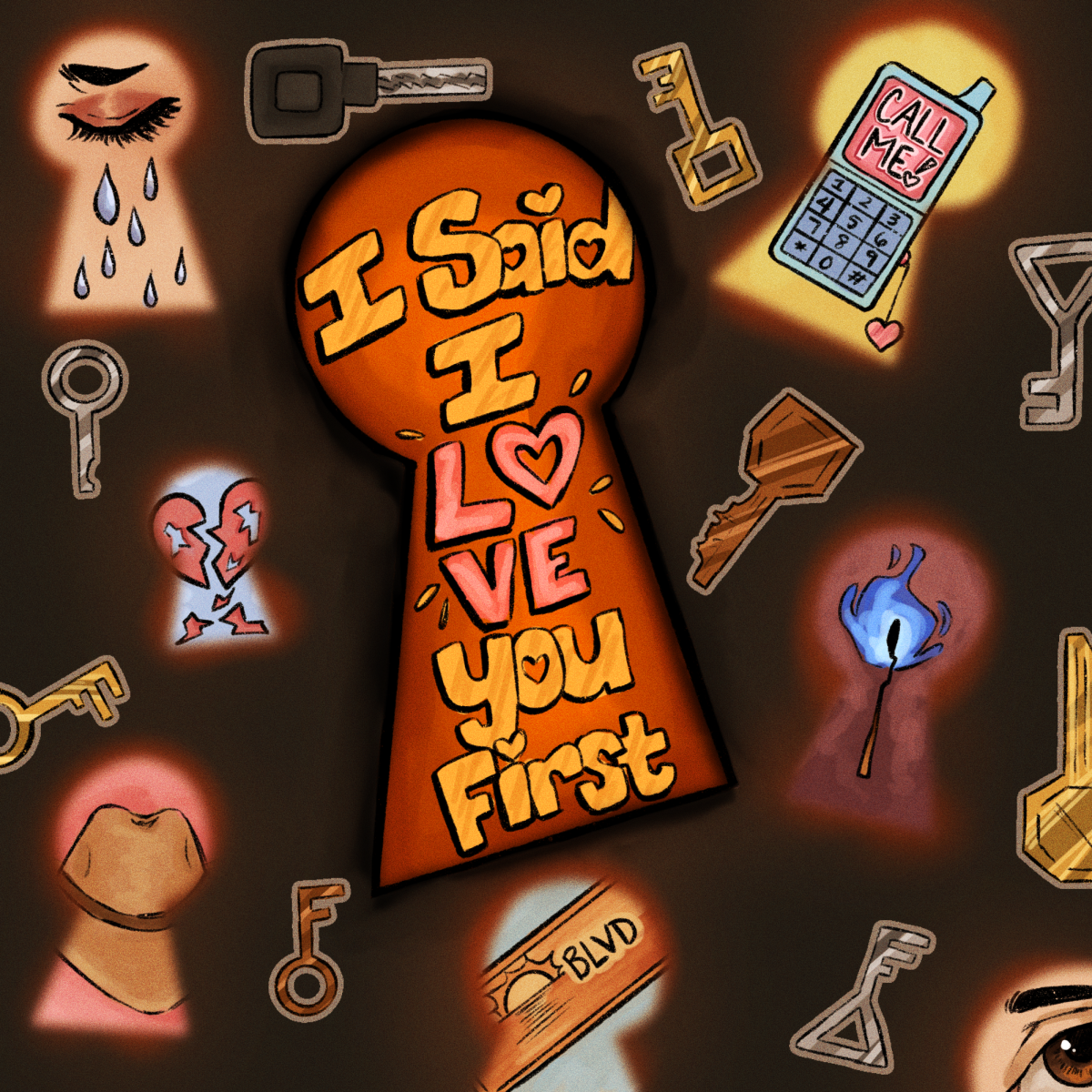It’s easy to fall in love with a band that is so good at writing songs about heartbreak.
A R I Z O N A’s sophomore electro pop album, Asylum, was released on Oct. 11. According to Billboard, the album title is a play on the literal definition of asylum — a safe space. Although it addresses heavy themes like broken relationships and mental health, it handles those topics with even-handed lyrics and an upbeat vibe.
At only 28 minutes, it feels like a succinct yet productive therapy session with three best friends. The artists say what they have to say and then shut up. Like the album title suggests, this is a “safe” move, but it is not to their detriment. It’s cathartic without being long-winded.
The song “Nostalgic” is about the weight of memory. The artists capture this emotion through synth-infused opening notes, followed by a persistent energetic drum beat. It describes a post-breakup moment where an individual only remembers the good times they shared with their partner. It’s the rose-colored glasses phase. It’s the phase where it’s easy to wonder what would have happened if both partners had stuck it out a little longer.
“Problems” describes the ups and downs of living with depression. Like the rest of the album, this song is upbeat and easy to dance to. The band is telling their listeners that it’s okay to feel their feelings. Zachary Charles sings, “Maybe it’s all in my head, maybe it’s me instead/I shoulda stayed inside, I never shoulda gotten outta bed.” The song is honest and emotional, but, perhaps ironically, isn’t depressing. It states that overthinking and substance abuse can worsen the problem, but refreshingly, it doesn’t offer the listener cookie-cutter advice on how to snap out of it.
“Still Alive,” the album’s closing number, is a high-energy anthem. The lyrics “All the pain and the pills/And the shame should have killed me/But I just won’t die” could be pulled out and inserted into any acid-inspired dance number from the ‘80s. That’s because the song’s main message of resilience is timeless. The tone is hopeful without being preachy. It offers the listener directions to the light at the end of the tunnel but doesn’t force them to find their way out if they aren’t ready. The album ends on a high note and the audience leaves satisfied.
There are few problems with this album. Although it’s short, sweet and to the point, a few slow songs with drawn-out dynamics would have been a good addition. Each of the nine songs on the album tackle big issues, but because they’re all upbeat, the listener does not experience a full spectrum of emotions. For example, when they sing about depression, at no point does the listener feel overwhelmingly sad. Stylistically, taking the high-energy approach to heavy-handed topics is okay, but adding a slow, vibey interlude would have been a nice touch.
The album does a good job of creating a safe space for the band members to work through their personal issues. In the span of time it takes their audience to listen to a self-help podcast, they can have an equally beneficial musical experience.





















